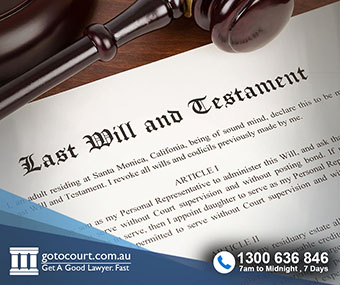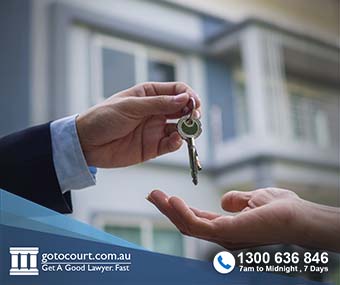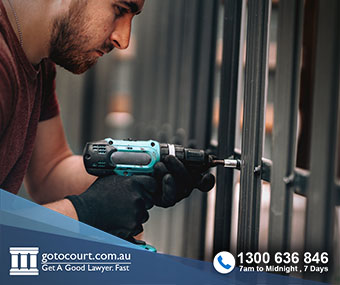What is a Compulsory Treatment Order (Vic)
What is a Compulsory Treatment Order (Vic)
Treating people with mental illness involuntarily (without their consent) in Victoria is governed by the Mental Health Act 2014. The act provides that in certain circumstances, a person may be made subject to a compulsory treatment order. An order of this type compels a person to comply with treatment (usually taking medication) for a mental illness. Victoria has one of the world’s highest rates of compulsory treatment orders in the world, and approximately 5000 Victorians will be subject to an order of this type at any one time.
The Mental Health Act – Guiding Principles
Section 11(1) of the Mental Health Act 2014 sets out guiding principles and rights of people receiving mental health services. Providers performing functions under the Act must have regard to these principles when providing services and exercising their powers.
Amongst other things, a person receiving mental health services should:
- Be provided with assessment and treatment in the least restrictive way possible, and that voluntary assessment and treatment is preferred.
- Be provided those services with the goal of bringing about the best therapeutic outcomes and promoting recovery and full participation in community life.
- Be involved in all decisions about their assessment, treatment and recovery and should be provided to support to do this. Their views and preference should be respected.
- Be allowed to make decisions about their assessment, treatment and recovery even where this involves a degree of risk.
- Have their rights, dignity and autonomy respected and promoted.
Psychiatrists, doctors, mental health staff and the Mental Health Tribunal must consider these principles when making decisions about assessing or treating a person’s mental health.
Treatment Orders
Two types of treatment orders exist, temporary treatment orders and treatment orders.
Temporary Treatment Orders can be made by an authorised psychiatrist after they have examined the person and determined that they have met the four (4) treatment criteria below. These orders can apply in an inpatient setting (in hospital) or in the community and last up to 28 days. Where a treating psychiatrist or team deems that a longer treatment order is required, a hearing will automatically be scheduled before the expiry of the temporary order to determine whether a treatment order should be made.
A hearing will also be conducted in the following circumstances:
- The person is already on a treatment order, and the authorised psychiatrist applies for a further treatment order (ie. Seeks to extend the previous order);
- The person subject to either the temporary treatment order or treatment order applies for a revocation (ie. Seeks to have the order removed).
A community treatment order can be imposed for a period of up to 12 months. An inpatient treatment order can be made for a maximum of 6 months, and this type of order allows the person to be taken to and detained in a designated mental health service to receive the treatment.
Treatment criteria
Before a person is subject to a temporary treatment order or a compulsory treatment order, there are four criteria that must be satisfied.
These are:
- The person has a mental illness;
- Because of the person has a mental illness, the person needs treatment to prevent serious deterioration to their mental or physical health, or to prevent serious harm to them or another person;
- The treatment will be provided to the person if they are subject to the treatment order; and
- There is no less restrictive means reasonably available to enable the person to receive the treatment
The last criterion stresses that if there is a reasonable alternative to a compulsory treatment order, the criteria will not be met, and an compulsory treatment order cannot be made. It is clearly stipulated in the Act that these types of orders are to be made as a last resort as voluntary treatment is preferred. The Act also provides that a person should be supported to make decisions or particulate in making decisions about their treatment.
Voluntary treatment should always be explored prior to a treatment order being made. This includes making enquiries as to how appropriate support and voluntary supervision can be put in place to assist the person to comply and accept treatment in a way that does not involve compelling them to do so.
The Mental Health Tribunal
The Mental Health Tribunal is made up of:
- A legal member;
- A psychiatrist or registered medical practitioner member; and
- A community member.
No one on the tribunal can be involved in the person’s treatment or care, and all decisions must be made by a majority of members.
Hearings
Hearings of the Mental Health Tribunal are to be conducted as informally as possible. Hearings are closed to the public, but anyone subject to an application for an order can have a representative and may invite support persons to attend.
A hearing is generally scheduled for an hour, but where there are more complex matters to be considered, a longer hearing may be required.
The Tribunal will consider written evidence and oral submissions, including that from the treating team (which is seeking the treatment order be made). The person subject to the application can give evidence at the hearing, as can support people, and other medical practitioners (for example a private GP or psychiatrist). Once the Tribunal has heard all the evidence, all participants are usually asked to leave the room so that the members can deliberate and make their decision.
The Tribunal then asks the participants to return and provides its decision and reasons. Each party to the hearing can request a written statement of reasons from the Tribunal within 20 business days of the decision being made.
Appealing decisions
The Victorian Civil and Administrative Tribunal (VCAT) is empowered to review decisions made by the Mental Health Tribunal and these are heard in VCAT’s Human Rights List. Any person who was a party to the Mental Health Tribunal hearing can apply to VCAT for review of the decision within 20 days of the decision being made or the written statement of reasons being given.
The person who is subject to a compulsory treatment order can also make an application for revocation of the order. Such an application can be heard by the Tribunal at any time the order is in force. The Tribunal will review the treatment criteria to determine whether the order is still necessary.
Electroconvulsive Treatment
Electroconvulsive treatment (ECT) is a medical procedure where electrical currents are applied to a person’s head to reduce symptoms of mental illness. It is usually only considered when medication or other forms of treatment are not effective.
As ECT is an invasive form of treatment, it is only in very limited situations that it is ever performed without a person’s consent. An ECT order can only be made by the MHT if it is satisfied that:
- The person does not have the capacity to give informed consent to the treatment, and
- There is no less restrictive way for the patient to be treated.
If you require legal advice in relation to a compulsory treatment order or in any other legal matter, please contact Go To Court Lawyers.

Affordable Lawyers
Our Go To Court Lawyers will assist you in all areas of law. We specialise in providing legal advice urgently – at the time when you need it most. If you need a lawyer right now, today, we can help you – no matter where you are in Australia.How It Works




1. You speak directly to a lawyer
When you call the Go To Court Legal Hotline, you will be connected directly to a lawyer, every time.

2. Get your legal situation assessed
We determine the best way forward in your legal matter, free of charge. If you want to go ahead and book a face-to-face appointment, we will connect you with a specialist in your local area.

3. We arrange everything as needed
If you want to go ahead and book a fact-to-face appointment, we will connect you with a specialist in your local area no matter where you are and even at very short notice.











